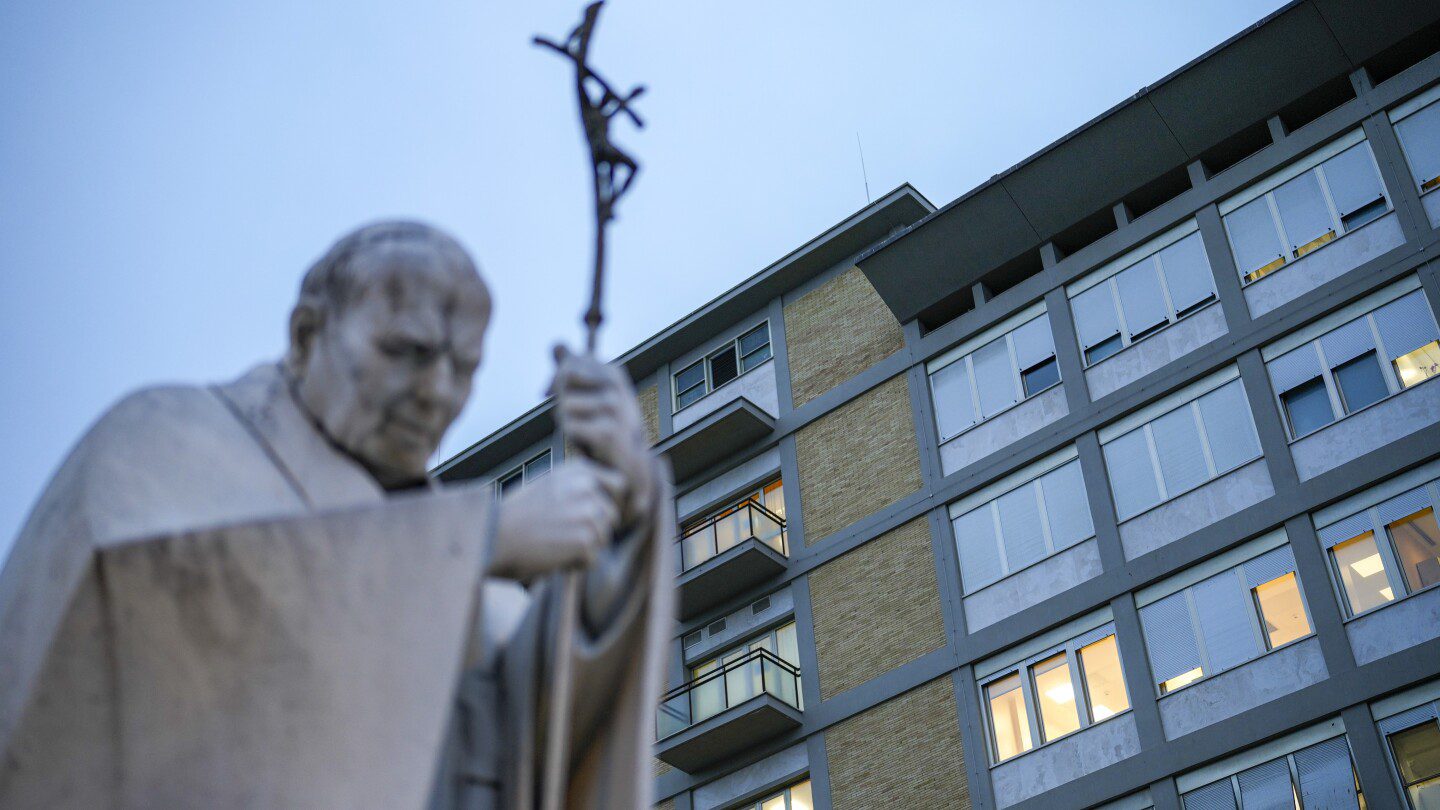
ROME (AP) — Pope Francis enjoyed a peaceful first night in the hospital following his admission for a respiratory infection, according to the Vatican. The 88-year-old pontiff was up early on Saturday, having breakfast and reading newspapers while undergoing his prescribed treatment, as reported by spokesperson Matteo Bruni.
The Argentine pope was hospitalized at Rome’s Gemelli Hospital on Friday, as his bronchitis symptoms intensified after a week of struggling with the illness. This marks his fourth hospitalization since being elected in 2013 and has sparked concerns regarding his deteriorating health.
Initial examinations indicated that he has a respiratory infection and a mild fever, resulting in the cancellation of his scheduled audiences at least until Monday.
Francis has a history of respiratory issues during the winter months. He was diagnosed with bronchitis on February 6, yet continued to hold daily audiences from his Vatican hotel suite. He conducted an outdoor Mass last weekend and attended a general audience on Wednesday, although he had to delegate the reading of his speeches to an aide due to breathing difficulties.
Having undergone surgery to remove a portion of one lung when he was young, Francis has faced various health challenges over the years. In 2021, he had 33 centimeters (13 inches) of his large intestine removed to address a narrowing of the colon. Earlier this year, he underwent additional abdominal surgery to remove scar tissue in the intestines and repair a hernia. He often requires a wheelchair, walker, or cane to navigate his residence, and he has experienced two recent falls, resulting in injuries to his arm and chin during these incidents.
Pope Francis is currently receiving care at the Gemelli Hospital, which has a private suite designed for pontiffs on the tenth floor. He mentioned during a previous hospitalization in 2023 that he had been diagnosed with “an acute and severe pneumonia in the lower lung areas.”
Bronchitis can sometimes develop into pneumonia, a more serious condition that affects the lungs’ air sacs. Medical professionals can identify pneumonia by detecting crackling or whistling sounds in the lungs during breathing; however, further diagnostic tests, such as chest X-rays and pulse oximetry to gauge blood oxygen levels, are often necessary. Treatment approaches vary based on severity but may involve supplying oxygen through a nasal tube or mask and administering intravenous fluids, in addition to addressing the root cause of the infection.
___
Coverage of religion by the Associated Press is supported through a partnership with The Conversation US with funding from Lilly Endowment Inc. The responsibility for this content rests solely with the AP.









